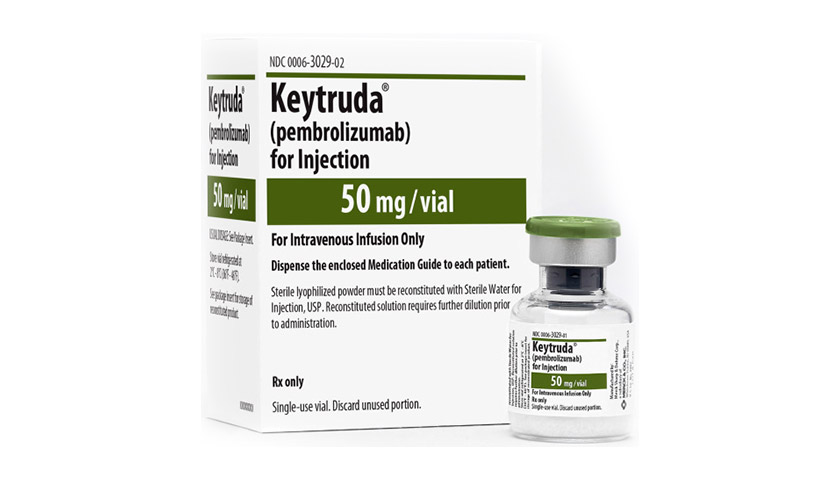Merck gets EU approval for Keytruda in triple-negative breast cancer

Merck & Co has claimed EU approval for Keytruda in triple-negative breast cancer (TNBC), a particularly hard-to-treat form of the disease.
The European Commission has cleared Keytruda (pembrolizumab) in combination with chemotherapy as a first-line treatment for locally recurrent, unresectable or metastatic TNBC involving tumours with a PD-L1 expression score of 10 or more.
The combination cut the risk of death by 27% compared to chemo alone in these patients, and helped patients to extend their lives by around 6.9 months to 23 months, according to data reported at this year's ESMO cancer conference. It also reduced the chances of disease progression or death by 35%.
The US and Japanese regulators approved the Keytruda plus chemo regimen for first-line TNBC treatment earlier this year.
The new approval is the first breast cancer indication for Keytruda in Europe, although elsewhere Merck has already started to expand the label for its cancer immunotherapy in TNBC.
In July, Merck secured FDA approval for the use of Keytruda pre-surgery alongside chemotherapy in the neoadjuvant setting, as well as in the post-surgery (adjuvant) setting as a monotherapy, to prevent tumours from recurring.
The EU approval also consolidates Keytruda's position in TNBC against its main rival Roche's Tecentriq (atezolizumab) – which has also made the cancer a key development target.
Earlier this year, Roche took the surprising decision to withdraw an accelerated FDA approval for Tecentriq in previously-untreated TNBC after a failed trial, even though an FDA advisory committee voted that it should stay on the market for that use.
Tecentriq used in combination with Bristol Myers Squibb's chemo drug Abraxane (nab-paclitaxel), was the first immuno-oncology agent be approved for TNBC in 2019, but failed a later confirmatory trial.
Roche's drug is still on the market for first-line TNBC in Europe, but the drugmaker withdrew a marketing application to extend its use to the neoadjuvant treatment of patients with early or locally advanced TNBC.
It is still plotting a comeback however, and is waiting for the results of IMpassion132 trial due in 2023, which is testing the Tecentriq alongside chemo in patients with early relapsing TNBC.
Merck said that Keytruda is the first checkpoint inhibitor in combination with chemotherapy to show a statistically significant improvement in overall survival in previously untreated patients with a PD-score of 10 or more.
Analyst Louise Chen of Cantor Fitzgerald said in a recent research note that Keytruda's peak sales potential is still "underappreciated" by many market observers – despite already making more than $14 billion last year – citing its potential in TNBC.













